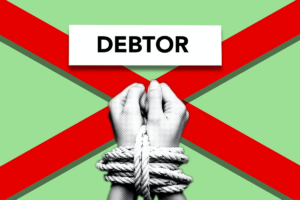How to Improve Your Financial Position With a Holiday Bonus

7 Best Buy Credit Card Essential Understandings
01/06/2023
Checklist to Prepare Your Personal Finances in the New Year
01/20/2023 For some lucky workers, this time of year comes with a holiday bonus. Whether you’ve received a bonus that you’ve been expecting or were pleasantly surprised by a generous bonus, you likely want to put these funds to good use.
For some lucky workers, this time of year comes with a holiday bonus. Whether you’ve received a bonus that you’ve been expecting or were pleasantly surprised by a generous bonus, you likely want to put these funds to good use.
If you want to use your holiday bonus to improve your financial situation, then you are in the right place. We will explore how to make the most of your holiday bonus while improving your financial situation.
Why Should You Use Your Holiday Bonus to Get Ahead Financially?
Building a stable financial situation takes time. Even if you’ve set up a path to financial success, it’s easy to get discouraged by the sheer amount of time it takes to tackle big financial goals.
Of course, patience is a helpful way to stick to the course. But another way to stay on top of your financial plans is to funnel any extra funds you receive towards your big financial goals. A holiday bonus might be a significant amount of money in your financial picture. Instead of spending it all on a splurge, consider using this unexpected influx of cash to get ahead financially.
If you are struggling to avoid a splurge, that’s normal. Consider setting aside a portion of your holiday bonus toward a fun purchase. Depending on the size of your bonus, you might be able to treat yourself to something fun and still use the rest of the funds to get ahead financially.
4 Ways to Get Ahead Financially With a Holiday Bonus
A holiday bonus is a thoughtful gesture from your employer. After a year of hard work, a token of appreciation can mean a lot. If you receive a holiday bonus, you have an opportunity to use those funds to get ahead financially. Although you can choose to splurge on other items, choosing to be savvy with your holiday bonus could lead you to a brighter financial future in the years to come.
Here are four smart ways to get ahead financially with a holiday bonus.
Pay Off Debt
One of the best ways to use your holiday bonus is to pay off any outstanding debts. Although taking out debt can sometimes be unavoidable, monthly debt payments are an undeniable drain on your financial situation. With that, funneling your holiday bonus towards extra debt payments might be the right move for your finances.
Not sure what the best order of operations is to pay down your debt? Generally, there are two different debt repayment strategies to pursue.
One of the most popular debt repayment strategies is the debt snowball method. The debt snowball starts with the newly available funds you have to throw at your debt. You’ll start by eliminating the debt with the smallest balance first. When you eliminate the smallest debt, you’ll roll its monthly payment into the growing snowball to tackle the next largest debt.
In contrast, the avalanche method focuses on tackling the debts with the highest interest rates first. After you eliminate the debt with the highest interest rate, you’ll move on to the debt with the next highest interest rate. Although the avalanche method is more mathematically efficient, you might stay more motivated by the small wins you’ll find throughout the snowball method.
Regardless of the debt repayment strategy you choose, you can start things off with a bang by putting your holiday bonus toward paying down the debt of your choice. Depending on the size of your bonus, you might be able to wipe off debt from your books for good. Even if your bonus cannot eliminate a whole debt, choosing this option will help you on your journey to becoming debt free.
Add to Your Emergency Fund
An emergency fund is the cornerstone of a household’s financial stability. When you have an emergency fund in place, it acts likely a safety net. If your income suddenly drops or you have to cover an unexpected expense, you can lean on your emergency fund to get you through challenging times.
Many personal finance experts recommend tucking away between three to six months’ worth of expenses into an emergency fund. For example, let’s say you spend $2,000 per month. With that, an ideal emergency fund would be between $6,000 to $12,000. But you might decide to save more or less in your emergency fund based on other factors, like your job stability and ability to cut back on discretionary purchases.
Of course, it’s often a challenge to save up this large amount of money. Although it’s possible to do it over time, a holiday bonus can go a long way toward topping off your emergency fund.
If you decide to put your holiday bonus into an emergency fund, consider using a high-yield savings account (HYSA). An HYSA offers a higher interest rate on your savings. With that, your funds can continue to grow at a steady pace. But you’ll still have access to the funds if you need them.
Save the Funds
While an emergency fund is an important savings goal, it’s likely not the only savings goal you have on the horizon. If you have other savings goals, consider stashing your holiday bonus directly into the appropriate savings account.
Here are some of the other savings goals you might have:

- Holiday savings: The holidays can get expensive. But planning ahead with your budget can take a lot of stress out of the holiday season. If you want to alleviate the financial pressures of your next holiday season, a portion of this year’s holiday bonus might be a good start.
- Retirement: Although you might feel like retirement is too far in the future, it takes decades to save for this major financial milestone. Consider setting up a retirement investment strategy. In some cases, you might decide to invest your bonus for your future retirement.
- Vacation fund: Everyone needs to unwind every now and then. If you have a vacation in mind or a general vacation fund, your holiday bonus could provide a boost.
Everyone has unique savings goals. If you have a savings goal in mind, then you might already know the perfect use for your holiday bonus.
Cover a Major Purchase
Major purchases can throw a wrench into anyone’s budget. A few major purchases that most of us encounter at some point in our lives include a new vehicle, furniture, a down payment on a home, vehicle and home repairs, educational courses to learn a new skill, or even home exercise equipment. But it’s often difficult to make these large purchases without diving into debt.
Depending on the size of your holiday bonus, you might be able to use it to cover a major purchase. It’s unlikely that your bonus will pay for an entire house. But it’s possible that the bonus will cover a significant down payment on a major purchase.
Before making a major purchase with your holiday bonus, weigh the pros and cons before moving forward. In some cases, it might make the most sense to cover a necessary purchase with this bonus. But in other cases, you might decide to save your bonus for a future need.
What to Avoid Using Your Holiday Bonus For
When you get a holiday bonus, it’s easy for your mind to jump to a major splurge. You might have a lavish vacation or frivolous item at the top of your wishlist. But it’s best to avoid spending your entire holiday bonus on something that won’t get you any closer to your financial goals.
You should absolutely consider using most of your holiday bonus to get ahead financially. However, that doesn’t mean you shouldn’t spend any of your bonus on a fun splurge. Consider keeping your splurge to 20% or less of the bonus. For example, let’s say you received a $1,000 holiday bonus. You might decide to spend up to $200 on a fun purchase and push the rest toward your financial goals.
It’s fine to treat yourself—within reason. But try to create a balance between your long-term financial stability and your short-term purchases.
The Bottom Line
You can make significant progress toward your long-term financial goals with the boost of a holiday bonus. With the right approach, you can use these funds to move the needle on major money issues.








1 Comment
Thanks!